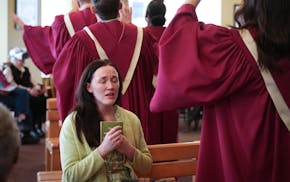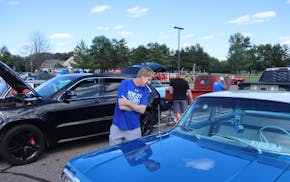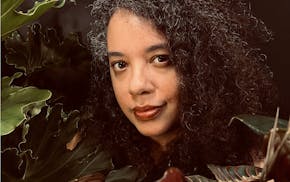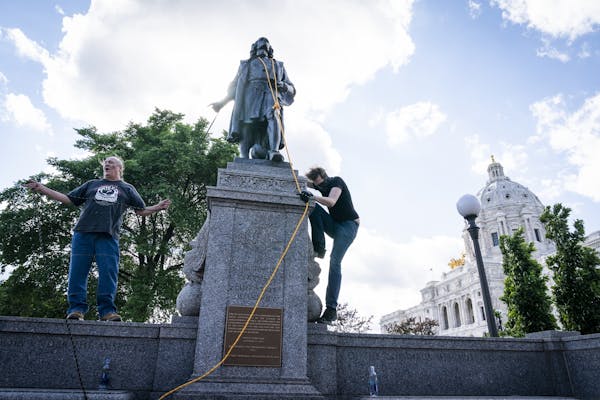A deadly white nationalist rally convulsed a Virginia city in 2017. Deborah Baker's "Charlottesville" comprehensively demonstrates how internet hatemongering and gun ubiquity are endangering pluralism, civic participation and good-faith debate.
Baker, the author of books about Minnesota poet Robert Bly ("Making a Farm"), Britain's erstwhile empire ("The Last Englishmen") and modernist poet Laura Riding ("In Extremis," a Pulitzer Prize finalist), grew up in Virginia. She also went to the University of Virginia in Charlottesville, which touts its scholarly pedigree.
The vile Unite the Right march left her confounded. "What hadn't I understood about the city I was born in?" she writes.
Seeking an answer, Baker obtained transcripts and recording of public meetings; scrutinized archived social media messages, textbooks, oral histories and historical documents; and talked to clergy, activists and others whose peaceful public gatherings were a stark counterpoint to the bigots.
White nationalists targeted the city after officials discussed removing a statue of Robert E. Lee from a park. The Confederate general "never once visited" Charlottesville, Baker writes. But for the Unite the Right group, the statue became a proxy for conservative white Christian culture, which nationalists claimed was under attack by anyone who didn't share their views.
Baker chronicles the debate over the statue in granular detail, acknowledging that transcripts of public hearings don't always lend themselves to gripping narratives and carefully distilling the most persuasive speakers' arguments.
"Cities and towns all over the South had suddenly realized that Confederate statuary and battle flags flying above statehouses now amounted to unexploded mortar shells planted in public squares," she writes.
Indeed, the far right's most toxic figures understand that they can inflame alienated, sometimes heavily armed, young men — the kind whose social media posts, Baker notes, compare white men who've murdered Black people to saints — with inflammatory rhetoric about purported affronts to their heritage.
The book's closing pages feature a minute-by-minute description of the rally itself, during which assaults and hate speech triggered what Baker calls "utter lawlessness." She also covers the following day, when a white man deliberately drove a car into an anti-Unite the Right group, killing a Virginia woman.
Given the demands on our attention in the Trump era, not all readers will want to revisit Charlottesville. But, as described by Baker, the events couldn't be timelier. Virginia and federal officials underestimated the size and ripple effect of Unite the Right, a lesson for government at all levels, which is often several steps behind the youngest, tech-savviest bigots, many of whom were raised as online gamers and digital natives.
Another of the book's urgent messages focuses on the ubiquity of guns, a major problem for basic governance and freedom of speech. Unite the Right backers arrived with rifles, handguns and other weapons, challenging counterprotesters to disagree with them.
Nonetheless, many citizens were uncowed, assembling to stare down the racists, Baker writes. She recounts a conversation she had with a pastor: "Democracy is a delicate thing, she told me. If you lose your vigilance, if you don't tend it, the world can turn on you. Just like that."
Kevin Canfield is a longtime contributor to the Minnesota Star Tribune's books coverage.
Charlottesville: An American Story
By: Deborah Baker.
Publisher: Graywolf, 442 pages.

Critics' picks: The 13 best things to do and see in the Twin Cities this week

Review: Beautiful singing and strong acting make Ten Thousand Things' 'Violet' a winner

54 festivals and fairs to check out this summer in Twin Cities suburbs

